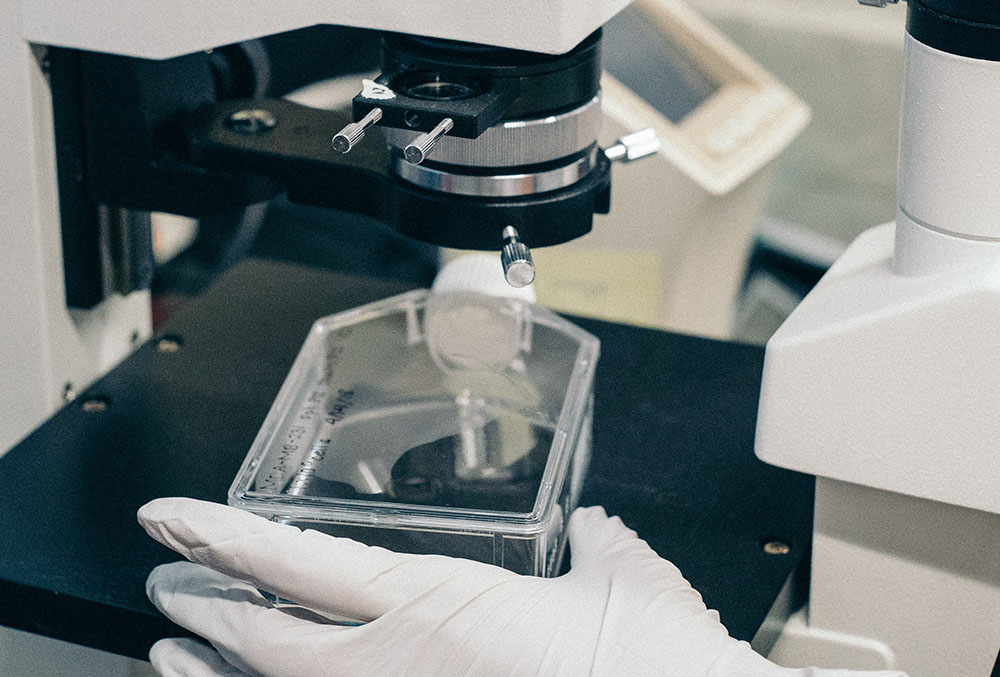More about Clinical Research
With the COVID-19 (coronavirus) pandemic building interest in clinical research studies for cures and vaccines, the team at Comprehensive Cancer provides details on how clinical research works, as the process drives new treatment options for COVID-19, as well as for cancer patients at Comprehensive.
Comprehensive is currently conducting clinical research studies for cancer in various phases. The practice does this to offer patients access to more treatment options that are not publicly available, but that may work in their unique cases. The practice’s efforts in clinical research have helped make more than 100 treatments FDA approved to be used as standard practice in the caring for patients.
All advancements in cancer treatment have come through clinical research. Comprehensive Cancer Centers prides itself on offering the latest in cancer treatment and clinical research to patients. The practice participates in more than 170 clinical research studies each year and has played a role in developing known treatments which include OPDIVO®, KEYTRUDA®, TECENTRIQ®, PROVENGE®, Xofigo®, Herceptin® and others.
So how does clinical research work? The following outlines steps and details to better understand the process for those who may be unfamiliar. This includes the opportunity to review the process by looking at Comprehensive Cancer Centers’ list of active clinical research studies. You can also reference the U.S. National Library of Medicine’s Clinical Trials website to track other studies, including ones involving COVID-19 therapies.
Why do clinical research? – A research study involving patient volunteers (also called participants) is intended to add to medical knowledge. There are two types of clinical studies: interventional studies (also called clinical trials) and observational studies. Each group’s activities and reactions to the process offers insights for research scientists to understand how well a new drug is working.
What is enrollment? – Enrollment describes the number of participants in a clinical study, which is important for Comprehensive as we urge patients who are good candidates to participate in research whenever it’s beneficial for their treatment. Becoming part of a clinical research study, such as any of the research studies Comprehensive Cancer has available, is an important part of advancing medicine, and we encourage anyone eligible to enroll. The more participants a study has, the more efficient the process is for getting a new therapy approved for the public.
What are timelines for clinical research studies? If you’re looking at clinical studies important to your personal circumstances, or even just for general interest, on a website, such as ClincialTrials.gov, you’ll see different dates beginning with a study start date, which is the date when the first participant was enrolled in a clinical study. If you monitor a study’s progress, new dates will appear as the research moves into different phases.
Once a study has started, key benchmarks such as estimated primary completion date and estimated study completion date are tracked. Each term is called estimated, as there are always variables in a study that may result in completion dates moving back or forward, as well as the chance that the study is not found to be effective and is discontinued.
The primary completion date is the day on which the last participant in a clinical study was examined or received an intervention to collect final data.
The study completion date is the day on which the last participant in a clinical study was examined or received an intervention/treatment to collect final data for the primary outcome measures, secondary outcome measures, and adverse events (that is, the last participant’s last visit).
Study dates also encompass details such as Phases, which you can learn more about here. While it takes absorbing many details to understand the process of clinical research, the topic is a helpful one to understand. You can learn more about clinical research, and how Comprehensive Cancer Centers plays a role in the important process on our website.
Comprehensive Cancer Centers Can Help
The physicians at Comprehensive Cancer Centers provide a variety of treatment options for cancer, blood disorders, breast health conditions, lung diseases and sleep disorders. To schedule an appointment with the team at Comprehensive, please call 702-952-3350.
The content is this post is not intended to be a substitute for professional medical advice, diagnosis or treatment. Always seek the advice of qualified health providers with questions you may have regarding medical conditions.



